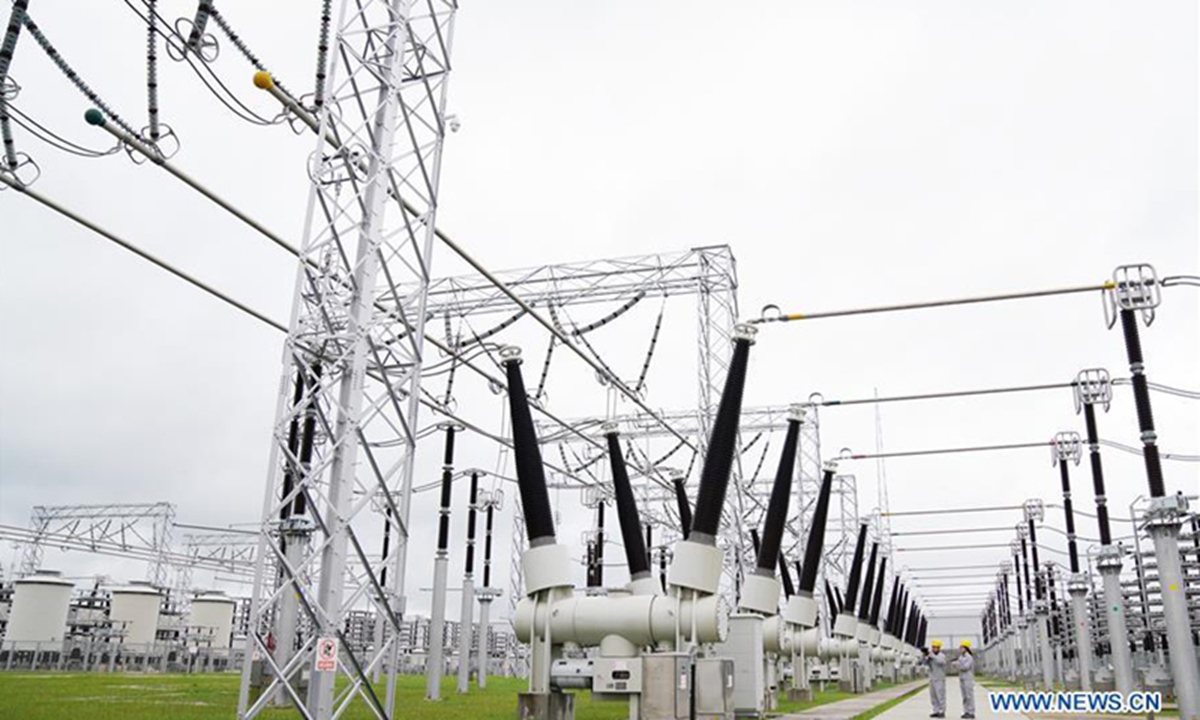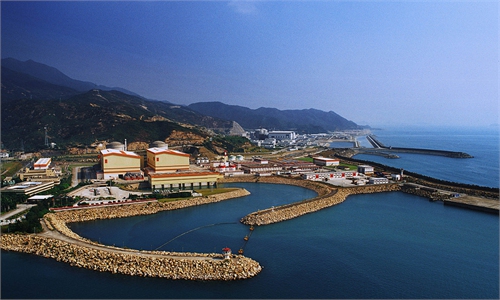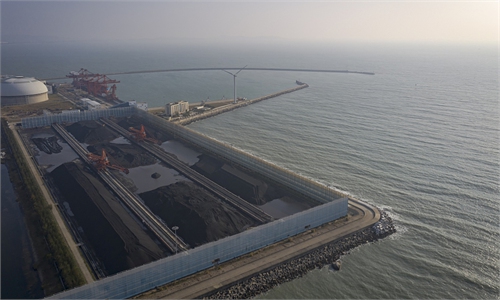
File photo: Xinhua
An unprecedented energy crunch is sweeping much of the world even before the Northern Hemisphere winter season fully sets in, when more electricity and heat are needed in homes and in factories.Lebanon suffered a complete outage on Saturday after the country's two biggest power stations shut down due to a fuel shortage. In India, Delhi Chief Minister Arvind Kejriwal on Saturday warned of a looming power crisis in the capital, saying that some major coal-fired stations were running on empty.
In Europe, natural gas prices have skyrocketed, fanning market fears over inflation. In the US, power companies have alerted customers that electricity bills will surge this winter and there could even be power blackouts to be caused by fuel shortage.
In China, several provinces have experienced power shortages amid tightening coal supplies, with rolling blackouts experienced by local residents and factories in northeastern China.
In addition to the soaring demand for energy amid the global economic recovery from the COVID-19 pandemic hit, there has been much speculation and misunderstanding over the causes behind the global energy crunch, which include extreme weather patterns, the carbon neutrality push, and other geopolitical factors.
As the energy crisis deepens, there is a growing concern about the chaos surrounding the energy transition from dirty fossil fuel to clean renewable ones.
The problem is not just limited to a single country's or a region's economic transition toward green development, but one shared across the world, which highlights the challenges and complexity of green development. On the one hand, carbon emission reductions have curbed investment in new production capacity in the traditional energy sectors, putting pressure on the fossil fuel power supply. On the other hand, the new energy technology is not mature enough and its production capacity fails to grow fast enough to fill the gap between supply and demand for energy.
From a Chinese perspective, the global energy crisis has once again reminded us of the urgency and significance of ensuring China's energy security and independence.
While coal still holds dominant role in China's energy mix, the country's dependence on imported natural gas, crude oil and other energy sources has been on a steady rise over recent years. Inevitably, the global energy crisis will have impact on the domestic supply chains and residents' livelihood as the prices of fuel and energy keep rising.
Since the transition to green energy won't happen overnight, China's dependence on fossil fuel imports will continue. During the transitioning process, it is imperative for China to strike a balance between reducing carbon emissions and guaranteeing a stable energy supplies.
China needs to continue to ensure its energy supply security by optimizing domestic supplies, diversifying overseas sources and protecting the safety of energy transport routes.
In the meantime, China needs to re-examine its green energy development path to address potential risk factors. It is an inevitable trend for domestic industries to reduce the use of fossil fuels and increase the use of renewable energy products, which requires more scientific and systematic planning.
The more energy independence China gains through vigorous green development, the more strategic initiatives it will accumulate. In the long run, only by reducing the dependence on fossil fuels can China break away from the constraints by the US or other external forces when it comes to energy supplies.



